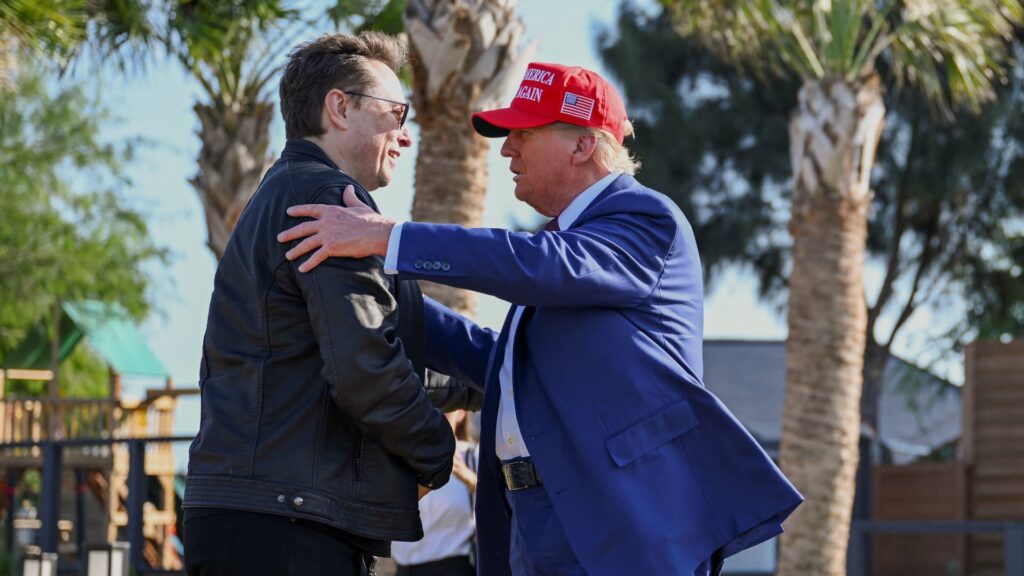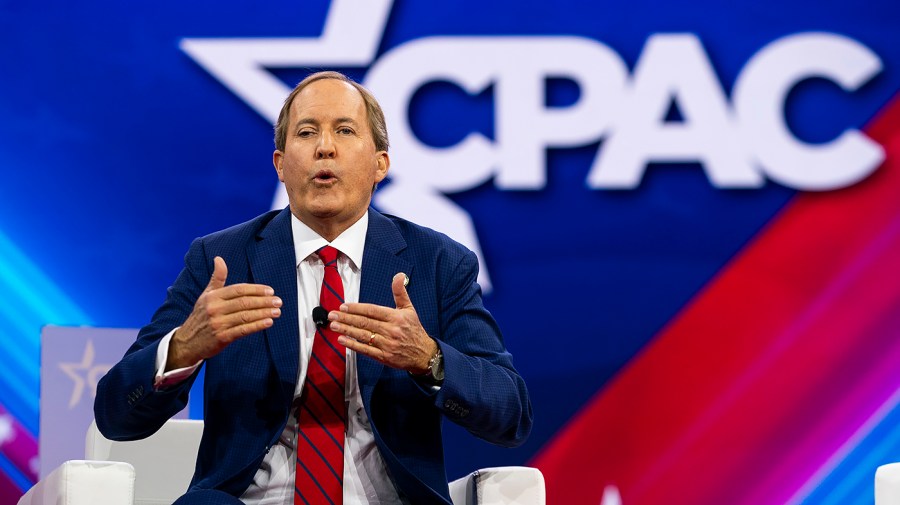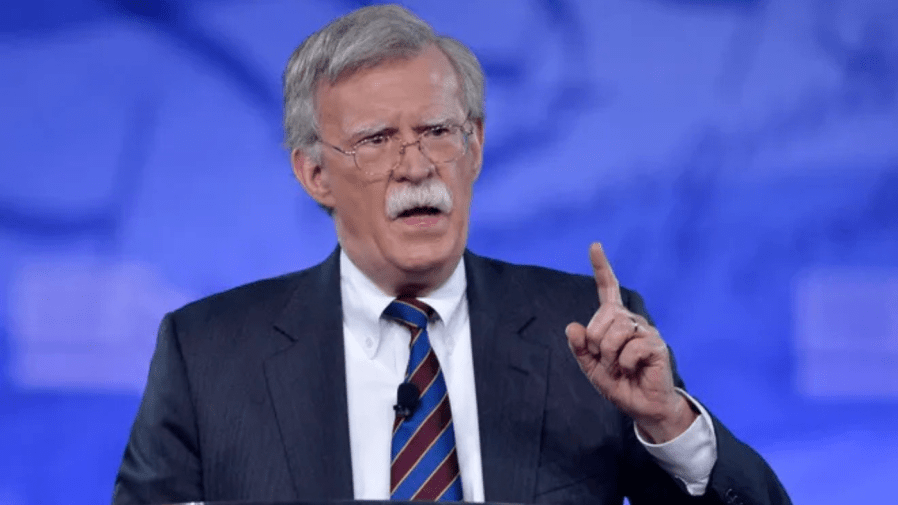]
U.S. President-elect Donald Trump greets Elon Musk before attending a viewing of the launch of the sixth test flight of the SpaceX Starship rocket, in Brownsville, Texas, U.S., November 19, 2024.
Brandon Bell | Via Reuters
Donald Trump’s first administration was chock full of super-rich figures whose combined wealth exceeded $5 billion, marking an unprecedented marriage of money and executive power.
Trump’s second term could make that total look like chump change.
More than half a dozen of the Republican president-elect’s picks for his incoming administration are either confirmed billionaires or widely speculated to be. Numerous others are multi- or centimillionaires.
The richest by far is Elon Musk, whom Trump has tapped to co-lead a bespoke advisory group tasked with slashing purported government waste.
Musk, the CEO of Tesla and SpaceX, is the world’s wealthiest person, with estimates placing his net worth above $346 billion and as high as $362 billion.
Vivek Ramaswamy, the entrepreneur and former presidential candidate working with Musk on the so-called Department of Government Efficiency, is worth $1 billion, according to Forbes.
The nonprofit Americans for Tax Fairness last month estimated that the average net worth among Trump, Vice President-elect JD Vance and his top appointees is $616 million.
For comparison, Forbes estimated the total net worth of President Joe Biden’s entire Cabinet at $118 million. And the tax group’s analysis is likely a low-ball estimate, since it came before Trump announced a slew of other highly affluent picks.
In the past week, he has picked billionaire financial services CEO Warren Stephens as his ambassador to the UK, billionaire investor Stephen Feinberg as deputy defense secretary, and venture capitalist David Sacks as his crypto czar.
Trump also picked Kelly Loeffler, a former U.S. senator who was reportedly considered the likely richest person on Capitol Hill while in office, to lead the Small Business Administration.
The same day, he chose billionaire CEO Jared Isaacman to head NASA.
Over the weekend, he selected Charles Kushner, the father of Trump’s son-in-law Jared Kushner, as his choice for U.S. ambassador to France.
The newcomers join an array of other super-wealthy Cabinet picks, including billionaire Howard Lutnick for Commerce secretary, WWE Co-founder Linda McMahon for Education secretary and Scott Bessent for Treasury secretary.
Trump also has picked billionaire Massad Boulos, the father-in-law of Trump’s daughter Tiffany, as a top Middle East advisor.
And Trump chose Dr. Mehmet Oz to lead the Centers for Medicare & Medicaid Services. Oz, as of 2022, was worth as much as $300 million, according to a New York Times analysis of a financial disclosure Oz filed during his failed bid for a U.S. Senate seat in Pennsylvania.
He lost that campaign to Sen. John Fetterman, D-Pa., who had worked to paint Oz as out-of-touch — a task made easier when Oz posted a viral video complaining about the cost of assembling a crudités platter.
Musk and Ramaswamy won’t need to be confirmed by the Senate: Their group will operate outside of government and work closely with the Office of Management and Budget.
But other wealthy Trump picks will need to navigate the process of being publicly confirmed through the Senate, putting a spotlight on myriad potential financial and ethical conflicts they may bring.
The procession of plutocrats could also risk watering down Trump’s populist brand, which gained support among working-class voters in the 2024 election.
To be sure, being rich hasn’t been a liability for Trump yet. His billionaire status has long been a key feature of his public persona, and it’s part of his appeal to many of his supporters. He is by far the richest person ever to serve as president, currently worth more than $6 billion, per Forbes.
But with the administration poised to usher in a level of wealth that dwarfs any that came before it, the nominees’ personal fortunes could become more of a front-burner issue.








